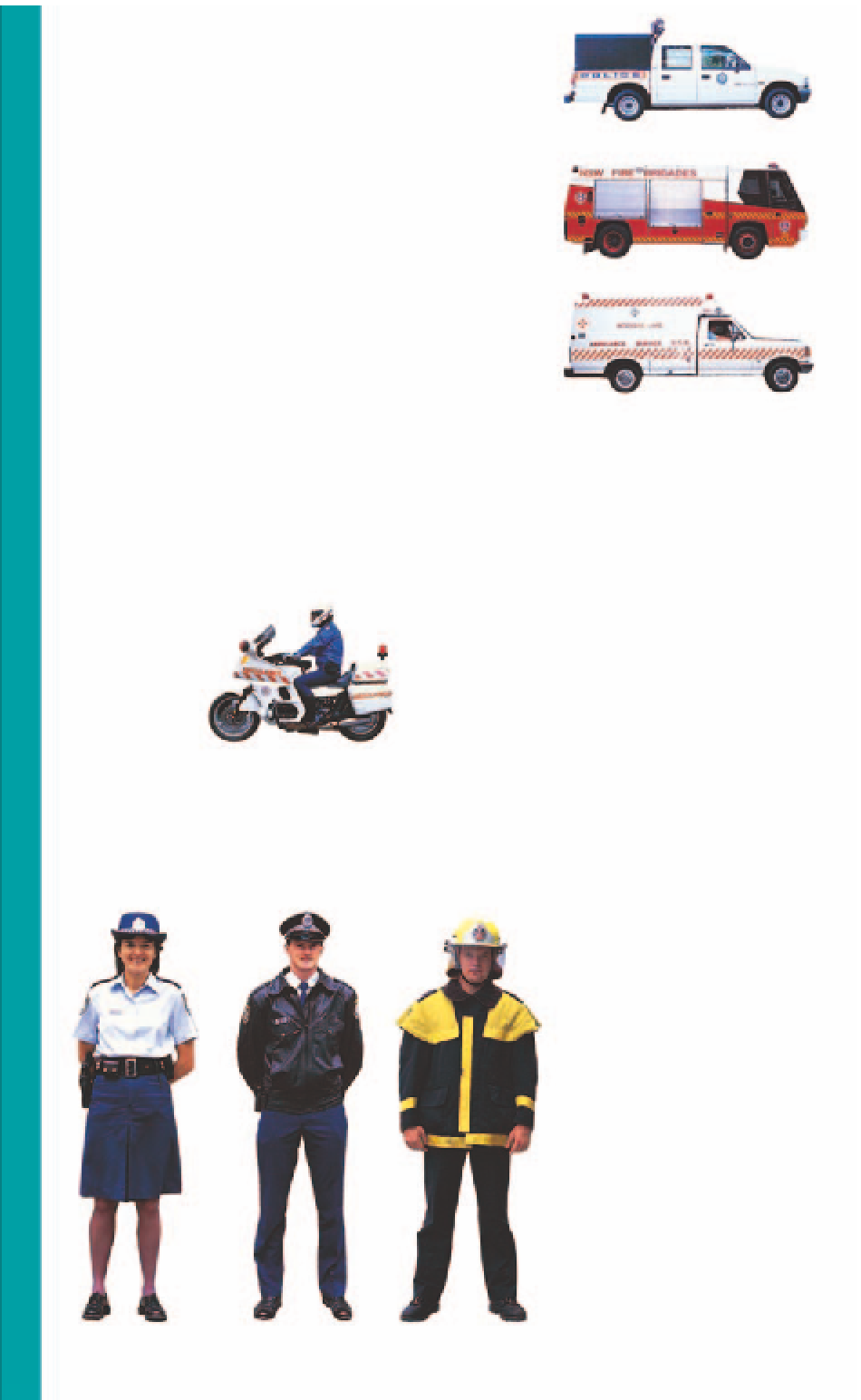Travel Reference
In-Depth Information
Personal Security and Health
Street crime in Sydney is less prevalent than in many
other large cities, but it does exist. You can minimize
your risk of becoming a victim of crime by exercising
reasonable caution. Members of Sydney's police patrol
the city's streets and public transport system in pairs.
Mobile police stations, set up at crowded tourist areas
and at public events, have proved particularly successful
and are popular with the public. Further afield, the surf
beaches and natural bushland can present a few dangers
of their own, and the following information offers some
practical advice for coping with environmental hazards.
Police vehicle
Fire engine
LOOKING AFTER YOUR
PROPERTY
clasp fastened. If you have a
car, always try to park in well-
lit, reasonably busy streets.
Remember to lock the vehicle
securely. It is also important
not to leave any valuables or
property visible inside the car
that might attract a thief.
Leave valuables and important
documents in your hotel safe,
and don't carry large sums of
cash with you. Traveller's
cheques are generally regarded
as the safest way to carry large
sums of money. It is also worth
photocopying vital douments
in case of loss or theft.
Be on guard against purse
snatchers and pickpockets in
places where big
crowds gather. Prime
areas for petty theft
are popular tourist
areas, beaches,
markets, sporting
venues and on
public transport.
Never carry your
wallet in an outside pocket
where it is an easy target for a
thief and wear shoulder bags
and cameras with the strap
across your body and the bag
or camera in front with the
Intensive care ambulance
marked “Nightsafe” area of
the platform. Although more
expensive, taxis are probably
the safest, most efficient means
of travel at night, especially
for shorter journeys.
PERSONAL SAFETY
Sydney has no definite off-
limit areas during the day, but
it is probably wise to
avoid the more unsavoury
side streets and
lanes of areas such
as Kings Cross. If
you take reason-
able care, you can
go into most areas
at night, although
visitors are advised
to stay clear of deserted, poorly
lit streets and toilets in parks.
When travelling by train at
night, stay close to security
points on platforms and use
those parts of the train in the
MEDICAL TREATMENT
AND INSURANCE
Sydney has excellent medical
services, with highly trained
doctors and modern hospitals.
However, overseas visitors are
not covered by Australia's
“Medicare” government health
scheme, and medical, dental
and ambulance costs are quite
expensive. Before leaving your
own country, be sure to pur-
chase adequate insurance for
any medical, hospital or dental
costs you may incur during
your stay. Under a reciprocal
arrangement, British passport
holders are entitled to free
basic emergency medical and
hospital treatment.
If you are in need of urgent
medical attention, dial 000 for
an ambulance or go to the
emergency department of the
nearest main public hospital.
For less urgent treatment, look
under “Medical Centres” in the
Yellow Pages of the Sydney
telephone directory.
The
King's Cross Travellers'
Clinic
offers treatment for
travel-related illnesses as well
as vaccinations. For non-
urgent dental treatment, look
under “Dentists” in the Yellow
Pages of the telephone direct-
ory. The
Emergency Dental
Service
has an after-hours
phone line for urgent cases.
Ambulance paramedic
Policewoman
Policeman
Fire officer







































